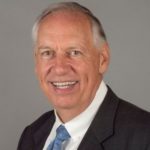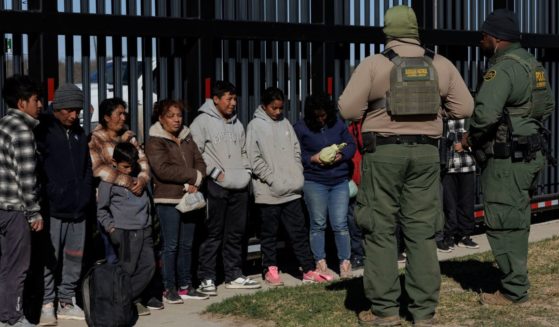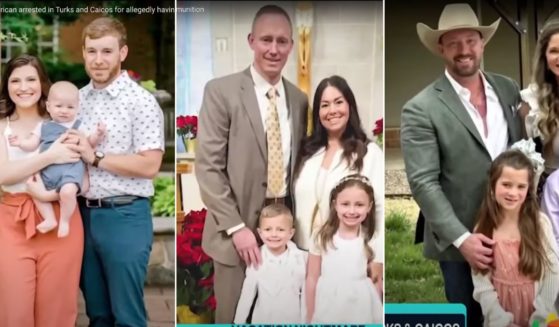Drollinger: Understanding the Separation - The Church's Job Is Crucial to the State
When Jesus said, “Render to Caesar the things that are Caesar’s; and to God the things that are God’s” (Matthew 22:21b), He was proclaiming a huge new distinction — something quite different for the coming Church Age relative to Old Testament Israel.
This verse is among the New Testament passages that represent the biblical basis of the institutional separation of civil government from God’s ordained institution of the church.
Unlike the preceding biblical epoch of OT Israel, wherein God’s people and the state were one — a theocracy or sacerdotal (“priestly or ecclesiastical”) system of governance — in the age to come, Jesus expected the two institutions to be differentiated in structure, purpose and leadership.
But institutional separation does not imply influential separation, as is posited by many secularists today. Clearly, such thinking is not supported by the Constitution or the Scriptures.
Let us examine this thinking more closely from a historical perspective.
As Christianity began, as recorded in the book of Acts, the separation of the church from the state clearly existed. Not until the fourth century A.D., when Constantine co-opted Christianity as the state religion (in his attempt to unify the vast and diverse Roman Empire), did the previously existing institutional separation between the two disappear.
Tragically, this lack of separation was seen even in the post-Reformation period. No surgical excision was performed by the leading Reformers to separate church and state.
Historically, not until the American experiment in government did our Founding Fathers (the stepchildren of the Reformers) react to sacerdotal England (where the Church of England and the state of England still remain united) and seek to separate themselves from a forced religious belief system incumbent on being born in England.
If, biblically speaking, church and state are to be separate institutions, does that suggest, as the secularist would postulate, an influential separation as well, i.e., a total disenfranchisement of the church? Is that the extrapolation Christ desires from Matthew 22:21? No!
Scriptures teach that the institution of the state is quite dependent on a strong and healthy institution of the church to build men and women in righteousness. Without a strong church to make disciples, the state soon goes wayward due to the sinfulness of its leaders.
Keep in mind that the state was not and is not designed to form righteous leaders — rather, its God-given purpose is to “reward those who do good and punish those who do evil” (1 Peter 2:13-14). It therefore depends on the church to provide mature-in-Christ leaders.
Since this is such a vital matter relative to the ongoing health of the state, what might the book of Proverbs have to say about it? A lot!
Proverbs 14:34 provides a summary insight: “Righteousness exalts a nation, but sin is a disgrace to any people.”
Righteousness, Proverbs states, both in a country’s citizens and leaders, is the primary need. Neither international trade nor gross domestic product nor natural resources (to name but a few) are more crucial to the exaltation of a nation. Rather, the righteousness of a nation’s citizens is its greatest resource — and the greatest commodity that a nation needs to be manufacturing on an ongoing basis!
But, again, the state is not in the business of manufacturing righteous leaders. It is not causal in this regard; it is reflective. The church must do that for her!
Given this analysis of our nation’s greatest need, the question quickly becomes how righteousness is formed in the lives of individuals. It is the preeminent duty of the church to convert the soul and make disciples of Jesus Christ in the political arena, i.e., to give a Christian worldview to the leaders of the state and its citizenry. There is no higher calling or purpose for the church (cf. Matthew 28:19-20).
It follows that for the church to spend her energy attempting to affect policy with little manifest concern for the souls of the state’s leaders is to have, biblically speaking, a misinformed and misguided mission. It is to attempt to do what others — strong-in-Christ elected and appointed public servants — can do much better from inside the state! It is to be less than efficient; it is to get out of her lane. To do the former at the expense of the latter is to misunderstand her God-ordained calling and role in society during the Church Age!
Rather than spend all her energy lobbying legislators for better laws, the church can best influence the state by building and sending righteous public servants to serve in government.
Keep in mind that the state is not in the business of manufacturing righteous individuals! Rather, God has designed it to punish unrighteous individuals (cf. Romans 13:4, 1 Peter 2:13-14).
Proverbs 29:2 serves to summarize this point: “When the righteous increase, the people rejoice, but when a wicked man rules, people groan.”
States Proverbs 11:10-11 in this regard, “When it goes well with the righteous, the city rejoices, and when the wicked perish, there is joyful shouting. By the blessing of the upright a city is exalted, but by the mouth of the wicked it is torn down.”
Adds Proverbs 28:12, “When the righteous triumph, there is great glory, but when the wicked rise, men hide themselves.”
As you can see, Proverbs has much to say about the necessity of righteous government leaders. Scripture shouts about this matter! The church must be in the business of manufacturing them via evangelism and discipleship at all levels of their career!
Unfortunately, for the past 50 years, some have sought to change the church into a lobbying organization. It is time to change all that! That, in fact, is what Capitol Ministries is all about — exemplifying a biblically correct relationship between church and state and discipling political leaders in the Word of God.
All would agree that righteousness is necessary to the dispatch of good government, but the only way to produce virtue in leaders is through the discipleship efforts of the church. As the church goes, so goes the state.
Said another way: The church should not expend all its efforts in activism, seeking to cajole those who hold office (who oftentimes reject Christ) to vote biblically. It won’t happen. You can’t expect someone who rejects the author of Scripture to obey the precepts of His book.
Instead, Proverbs clearly emphasizes creating and exalting righteous leaders. The church must emphasize this task: developing statesmen in Christ! It must be pre-political.
Righteous, mature-in-Christ public servants are the greatest resource of the government — and it all starts with an institutional separation of the church from the state.
Click here to read the full study.
The views expressed in this opinion article are those of their author and are not necessarily either shared or endorsed by the owners of this website. If you are interested in contributing an Op-Ed to The Western Journal, you can learn about our submission guidelines and process here.
Truth and Accuracy
We are committed to truth and accuracy in all of our journalism. Read our editorial standards.












